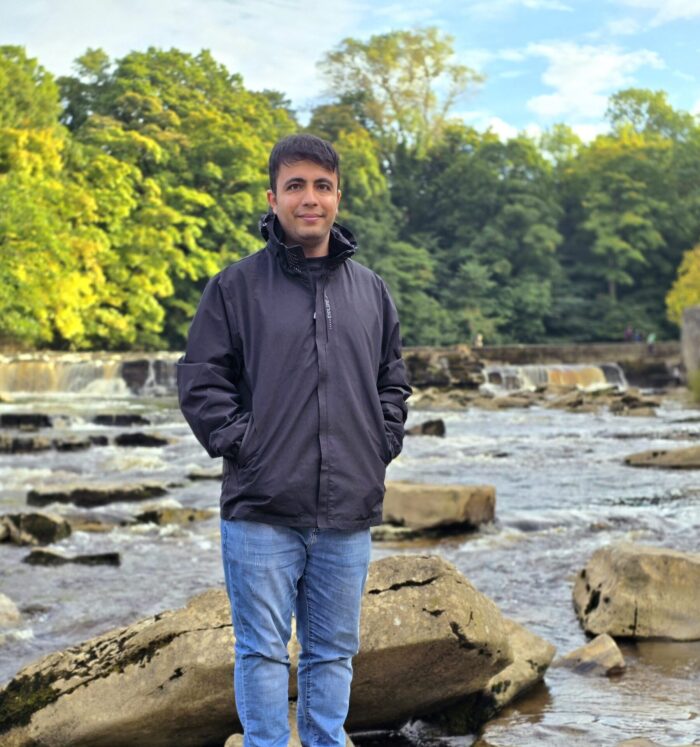LIFD Early Career Researcher Spotlight: Mostafa Soroor
Thesis title: Microfluidics for Synchrotron to unlock structural changes in biomolecules
School/ Faculty: CDT in Fluid Dynamics, School of Computer Science
Supervisors: Professor Nik Kapur, Dr Arwen Tyler, Professor Nick Terrill (Diamond Light Source Ltd)
Tell us a bit about yourself: I am in the final year of the CDT in Fluid Dynamics program—the third year of my PhD. Before starting this, I completed both my undergraduate (at Arak University, Iran) and MSc (at Tarbiat Modares University, Iran) in Mechanical Engineering. My MSc research focused on designing a droplet-based microfluidic device using numerical multiphase simulations and developing a microfluidic chip based on the simulated design to experimentally study different droplet generation regimes.
Between 2019 and 2021, I worked in the Engineering and Development Unit of Parsian Gas Refinery Company, Iran. In this role, I was part of a team of engineers who applied fluid dynamics and heat transfer principles to the design, maintenance, and manufacturing of piping systems and other refinery equipment. This hands-on experience deepened my passion for research and motivated me to pursue a PhD to further expand my knowledge.
Outside of research, I enjoy walking, hiking, road trips, and nature photography.
What is your research about? My research focuses on the design, optimization, and integration of microfluidic systems for time-resolved small-angle X-ray scattering (SAXS) experiments at synchrotron beamlines. Specifically, I developed a novel vortex T-mixer stopped-flow device to study rapid reactions initiated by mixing different substances. This work is particularly valuable for applications like understanding how nanoparticles can be used in smart drug delivery systems, including those for cancer therapy. My research involved using multiphase CFD simulations to design and optimize microfluidic systems, fabricating microfluidic chips, and developing custom flow drivers and controllers.
In addition to hardware design, I integrated this stopped-flow device with the EPICS control system of the I22 beamline at Diamond Light Source during a one-year placement I completed last year. This integration ensured precise control and reliable operation during experiments while improving the device’s accessibility and user-friendliness for beamline users.
What did you wish you knew before starting a PhD? A PhD is a great chance to learn and grow, but it also comes with its challenges. These challenges can be stressful and might affect your mental health, so it’s important to maintain a good work-life balance and reach out for help if needed. Research is often open-ended, and trying to make everything perfect can make tasks take much longer than necessary. It’s better to aim for good enough rather than perfect, as perfectionism can impact both your work and mindset. There will also be times when things go wrong and feel overwhelming. In those moments, it’s important to remember that setbacks are part of the process, and there’s always another day to try again.
What are your plans for the future? I’d like to continue doing research that allows me to apply the knowledge and skills I’ve gained so far while also challenging me to grow and learn new things. I’m open to opportunities in both industry and academia—whether in a Research and Development (R&D) role or as a postdoc.

